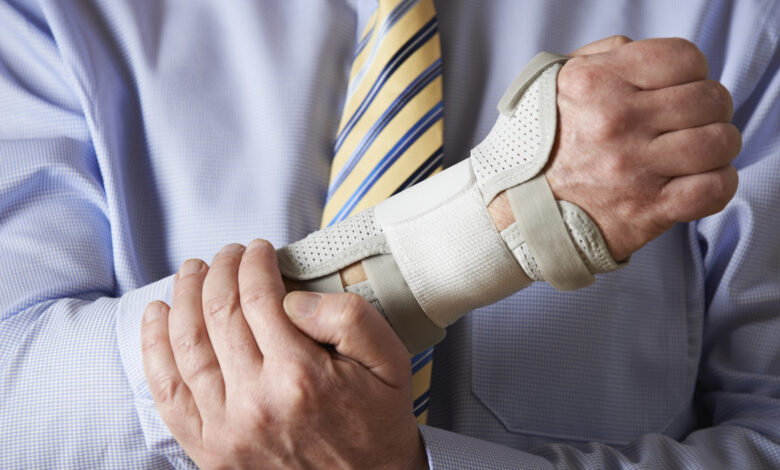What to Do After Suffering a Personal Injury: Legal Rights and Recovery

In the turbulent moments and days after sustaining a personal injury, it’s easy to become overwhelmed by the surge of decisions to be made and procedures to follow. A clear understanding of your rights and the subsequent steps is vital. It is not only about healing but also about ensuring you are compensated justly for your losses. Each personal injury situation is unique, from car accidents to workplace incidents, yet the approach to dealing with them shares common ground.
The guidance of a knowledgeable Philadelphia personal injury lawyer can be indispensable in unraveling the complex tapestry of legal actions necessary for a fair outcome. Their expertise can provide a lighthouse in the storm of legal proceedings, ensuring you navigate these with your rights and interests upheld. Their role is to lift the burden of legal jargon and procedure off your shoulders, allowing you to concentrate on what’s paramount—your health.
Immediate Actions to Take Following a Personal Injury
Once a personal injury incident occurs, the clock starts ticking. Your immediate response can significantly influence the outcome of a potential legal claim. Safety is the priority—moving out of harm’s way and calling emergency services if required should never be delayed. Following that, medical attention is paramount. Even if injuries appear negligible, some conditions, like traumatic brain injuries, can go unnoticed without professional medical evaluation. While healthcare professionals attend to your well-being, if circumstances and your condition permit, document the incident meticulously by taking photographs, securing video footage, and obtaining witness contact information. This evidence compilation will be vital when detailing the event to insurers or legal representatives.
Understanding Your Rights as an Injured Party
Many people aren’t aware of their rights after sustaining a personal injury. There are various legal paths to consider, but crucially, the right to seek compensation for your losses ranks highly among them. This right extends across multiple spectrums of the injury, from physical and psychological damages to financial and experiential losses. Understanding negligence—a fundamental tenet of injury law—is critical. If someone owed you a duty of care and their failure to meet this duty resulted in your injury, their accountability could be proven in court. By doing so, you’re not merely fighting for your entitlements but also upholding a standard of caution that could prevent future negligence.
The Role of Personal Injury Attorneys
Reliable New Jersey personal injury lawyers become invaluable allies after an injury. Their expertise extends beyond legal representation; they provide consolation and clarity through one of the most perplexing times of your life. From evaluating the validity of your claims to representation in complex negotiations with insurance companies, their role is multifaceted. Moreover, they possess the investigative prowess required to unearth the intricacies of your case, often operating with a network of experts who can dissect accident scenes or medical circumstances, further bolstering your legal standing.
Evaluating Your Case: What Contributes to a Valid Claim
Only some injuries will result in a successful legal claim. To foster a compelling case, you must demonstrate that the party at fault owed you a certain degree of care, that they breached this duty, and that this breach culminated in your injuries. Also playing a critical role is the statute of limitations, which sets the timeframe within which you can lodge a claim. Awareness of these timelines is crucial because you may forfeit your right to seek legal recourse once it has expired. Therefore, prompt action and scrupulousness in understanding the specific legal parameters are indispensable to a valid personal injury claim.
The Claim Process: Steps to Prepare
Instituting a personal injury claim is a layered process, often starting with in-depth documentation and the filing of the initial claim with an insurance company. Wading through these proceedings can be intricate, particularly as insurers may not have your best interest at heart, seeking instead to minimize payouts. Be prepared for several negotiations and recognize the importance of not accepting a settlement that undervalues your suffering and losses. Patience and persistence are valuable virtues here, along with unwavering attention to detail in every document and correspondence about the claim.
Compensation in Personal Injury Cases: What Can You Recover?
Discussion of compensation forms the nucleus of many personal injury cases. It’s not limited to reimbursement for the immediate medical costs but also extends to compensation for a gamut of consequences resulting from the injury. Lost wages, pain and suffering, emotional distress, and, in more grievous circumstances, lifelong disability and care requirements are in the scope of recoverable. The equation of compensation calculations may encompass the degree of guilt, the persistence of the injury’s impact, and the divergent effects on one’s personal life and potential future.
Settling a Personal Injury Claim vs. Going to Trial
Settling a claim outside of court or proceeding to trial presents a critical juncture in pursuing justice. Settlement offers a guaranteed outcome often swifter than the unpredictable timeframe of court proceedings. It provides closure without the uncertain gamble of a trial verdict. However, settlements can result in lesser compensation than potential trial awards. Despite its uncertainties, the courtroom may result in more excellent compensation reflective of accurate loss valuation. Still, it also carries the inherent risk of receiving less than the settlement offer or losing the case. This decision—settlement or trial—requires a careful, well-informed consideration, ideally under the stewardship of a seasoned attorney.



